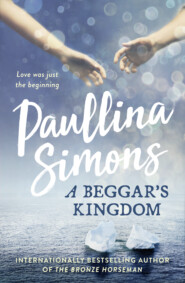По всем вопросам обращайтесь на: info@litportal.ru
(©) 2003-2025.
✖
Children of Liberty
Автор
Год написания книги
2019
Настройки чтения
Размер шрифта
Высота строк
Поля
“I know them all,” said Herman.
“Not this one.”
“Son, why do you think you’re the only one who knows everything?” Herman’s attention turned back to Ben. “You should stay away from things in which there is no future,” he went on.
“Oh, I agree, sir. The bananas are the future. I’m sticking with them.”
“There’s no future in them either. They’re a funny little fruit that will never catch on. But I’m pleased they amuse you.”
“Mark my words, sir,” said Ben. “They will absolutely catch on. We’ve got a businessman here in Boston, Andrew Preston, who started the United Fruit Company. He is one of the reasons I switched to engineering.”
“A man who runs a banana company,” Elmore asked, “is the reason you’re studying engineering?”
“Ben,” asked Harry, “isn’t Andrew Preston your mother’s friend?”
“Oh?” said Herman with a sly smile at Ellen. “That’s disappointing.”
While Ellen blushed, a nodding Ben was all infectious smiles. Even Esther didn’t look quite so pale anymore: they had stopped talking about Italian girls in North End.
“He’s a brilliant man,” Ben said, “this Preston fellow. A true visionary.”
“Ellen, do you agree with your son?”
“I reserve all comment.”
“Is he a handsome man?” Herman pressed on.
“I really reserve all comment,” said Ellen.
“Well, that is truly disappointing.”
Everyone laughed and the tension lifted. Louis served raspberry sherbet to cleanse the palate. Raspberries were in season and Bernard had made the sherbet from scratch earlier that afternoon. Harry smiled to himself as he asked Louis for second helpings. How did Ben do it? Make all situations lighter, better?
But for Ben, the bananas were not just a conversational play at the dinner table to help his friend. Later, by the fire in the library, sipping some brandy, he continued to extol the virtues of the export business to a relaxed Herman, an attentive Esther, and a delightfully disagreeable Elmore. “I really am thinking of going into exports, sir,” Ben said to Herman. “The bananas are not going to walk to Boston by themselves.”
“Perhaps it’s best they don’t,” said Esther.
Ben bowed to her comically. “They need to be grown. That requires development of not only the most efficient farming techniques, but also construction of housing for the workers. The bananas need to be collected, appraised, counted, packaged and crated. Someone has to do all this.”
“And someone has to make the crates,” Herman said, seeing the nails because all he carried was a hammer.
“First they have to procure the lumber to make the crates,” Orville cut in, seeing the nails because all he carried was a hammer.
“Absolutely,” Ben agreed, who carried a number of tools with him. “Even lumber has to be delivered and processed into an end-product for the crate-making. The crates should be made locally, in Costa Rica. Which means someone there has to be taught to make them.”
“How difficult could that be?” asked Harry.
“Well, and someone has to be sent there to teach them,” said Irma Porter, who had once been a teacher.
“Right, Mrs. Porter,” Ben agreed. “And then the bananas have to travel eight thousand miles by ship or by land to Boston where I can offer them to an underwhelmed Esther.”
“No, no,” Esther said, straight-faced. “I enjoy them very much. Have you got any more?”
Ben gave her an exaggerated glare, but the Porters didn’t stay and partake of the conversation further. It was getting late and their carriage had to travel quite a way south across the Charles, to Brookline.
After they left and Herman came back inside the library, he resumed the conversation as if no time had passed. “I still don’t see how this is an engineering problem, Benjamin,” he said.
“It’s nothing but,” said Ben, happy to keep talking about it. “From beginning to end. What complicates matters is that bananas do not stay fresh for long. Mercilessly they continue to ripen until they rot. Refrigeration has been shown to stave off spoilage. So now there is one more thing to think of, to build, to generate. The fruit needs to be picked while still green and transported from Costa Rica to California, then across our entire country. Railroad tracks must be built through Central America, an unwelcoming terrain if ever there was one. And now, to answer your question, sir, this is the part where the engineering comes in.” Ben grinned. “This is also the part my sainted mother, as you call her, is least happy about.”
“Oh, no,” Ellen said from the couch when she overheard. “Don’t start that again. And why are you all standing there like giraffes?”
They finally got off their feet, and made themselves comfortable on the sofas and chairs. Louis poured more brandy and relit Herman’s cigar.
Ben continued excitedly. “I’m writing several detailed proposals to the Isthmian Exploration Commission to reopen the research into the efficacy question of building a canal that cuts straight across Central America, either in Nicaragua, which is close to Costa Rica and my bananas, or Panama, which happens to be geologically better suited for a canal.”
“Lunacy!” Ellen exclaimed. “He wants to build a canal in Panama.” For a moment there was silence in the library, even the crackling fire quiet.
Elmore spoke. “Mr. Shaw, how can you say a canal would be geographically better in Panama?”
“I didn’t say geographically.”
“Perhaps like your friend Harry, you ought to study history instead of engineering.”
“I have studied history,” Ben said. “Also geology. Which is why I know for a fact Panama is the best place.”
“Have you read what happened to the French ten years ago?” asked Elmore with polite disdain. “During their botched national attempt to build a canal in Panama?”
“Elmore is right, Ben,” said Esther. “I don’t know what you’re thinking. Panama is too far away.”
“It’s close to the bananas, Est.”
“This isn’t about distance,” Elmore said. “It’s about the French losing over 20,000 men chasing this supreme folly.”
“Not to the canal,” said Ben. “To influenza.”
“It wasn’t influenza,” Elmore returned. “It was malaria. And the reasons for the malaria are not going to go away by the time you send Americans to Panama.”
“Ben isn’t going there himself,” Esther said quickly. “He’s just writing a report.”
Ben frowned. “I thought a virus killed the French?”
Elmore nodded. “Yes, but spread by what means?”
“How should I know?” Ben was irritated to veer so off topic. “Sneezing?”
“Mosquitoes,” Elmore replied. “Perhaps if you get rid of those, you can build your canal.”
“More to the point,” Herman interrupted, “you don’t need a canal to sail a boat on the Caribbean. Ben, I wonder if your mother is right about this one.”











